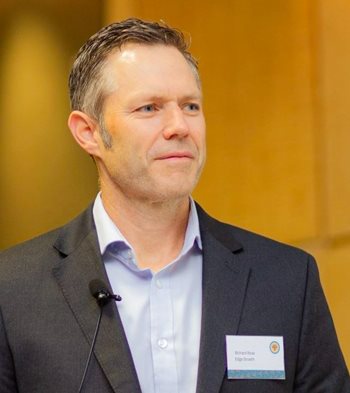
Richard Rose, CEO at Edge Growth
Small businesses in South Africa are the cornerstone of our economy and have long been identified as vital entities for job creation. The challenge lies in the fact that not enough SMEs experience success to the point that they can significantly contribute to the alleviation of unemployment.
“Given the macro-economic challenges coming off a Covid recovery year in 2021 and early 2022, many small businesses are still struggling to grow substantially,” says Richard Rose, CEO of the funding business at venture and impact specialist Edge Growth.
He adds that these difficulties include rising inflation and interest rates, the war in Ukraine, the collective effects these factors have had on supply chain and costs as well as the devastating effect of load shedding.
Rose says that while the Covid pandemic seems long gone, there are so many current and future hurdles facing small businesses. “Load shedding has already caused untold damage to the small business sector, and this power crisis is going to continue to put a serious damper on the SMEs in 2023,” he says.
As established small business development specialists, Edge Growth believes that SMEs have the potential to shape South Africa’s future and provide solutions to scale small and growing businesses. Rose says that along with the many challenges, 2022 saw some great SME success stories.
These included Mpilenhle Recycling, a KwaZulu-Natal recycling business which successfully exited the Edge Growth Action ESD Fund, having repaid their funding settlement amount in full. This startup has grown from strength to strength and recently raised a R4m grant from The Department of Fisheries, Forestry and Environment’s (DFFE) Recycling Enterprise Support Programme.
Going forward, we need to do more of what we are already doing in terms of educating small businesses about how to raise money, how to access markets and how to position themselves well in terms of corporate supply chains.
– Richard RoseOther achievements over the last year include Lula Loop, a corporate ride sharing app which Edge Growth helped to finance through various funds, and Dexter’s Meat Market, a locally owned township business which opened its third store in Vosloorus through funding by The Abadali EEIP Fund, which is administered by Edge Growth.
“These SMEs demonstrate the potential when a small business is given the correct platform and support to grow,” he says, adding that other successful businesses which Edge Growth supported last year include those within the construction, engineering, renewables and training space. Given the disruptive and demanding economic climate, Rose is passionate about the need to support a more robust SME sector in South Africa.
“I think the knock-on effect of preferential procurement is vital. Providing corporates with local alternatives over previously imported goods and services is key to growing this sector, along with improved entrepreneurial education and support,” he says. “Going forward, we need to do more of what we are already doing in terms of educating small businesses about how to raise money, how to access markets and how to position themselves well in terms of corporate supply chains. As a country, we need to continue to raise money and deploy money into this very important sector.”
SMEsEdge Growth 4 Oct 2022
According to the Organisation for Economic Co-operation and Development (OECD), there are an estimated 2.6 million micro, small and medium enterprises in South Africa, of which about 37% are considered formal. The contribution by small business towards South Africa’s economy increased from 18% in 2010 to 40% in 2020.
Despite decades of democracy, South Africa is still home to one of the most unequal societies in the world. While SMEs are the single most powerful source of job creation and upliftment, most fail within the first two years without adequate help. Supporting the small business sector is one way to actively contribute to changing this.
For more information about how to apply for funding, how to better support local small businesses or for more about Edge Growth, please go to www.edgegrowth.com.

